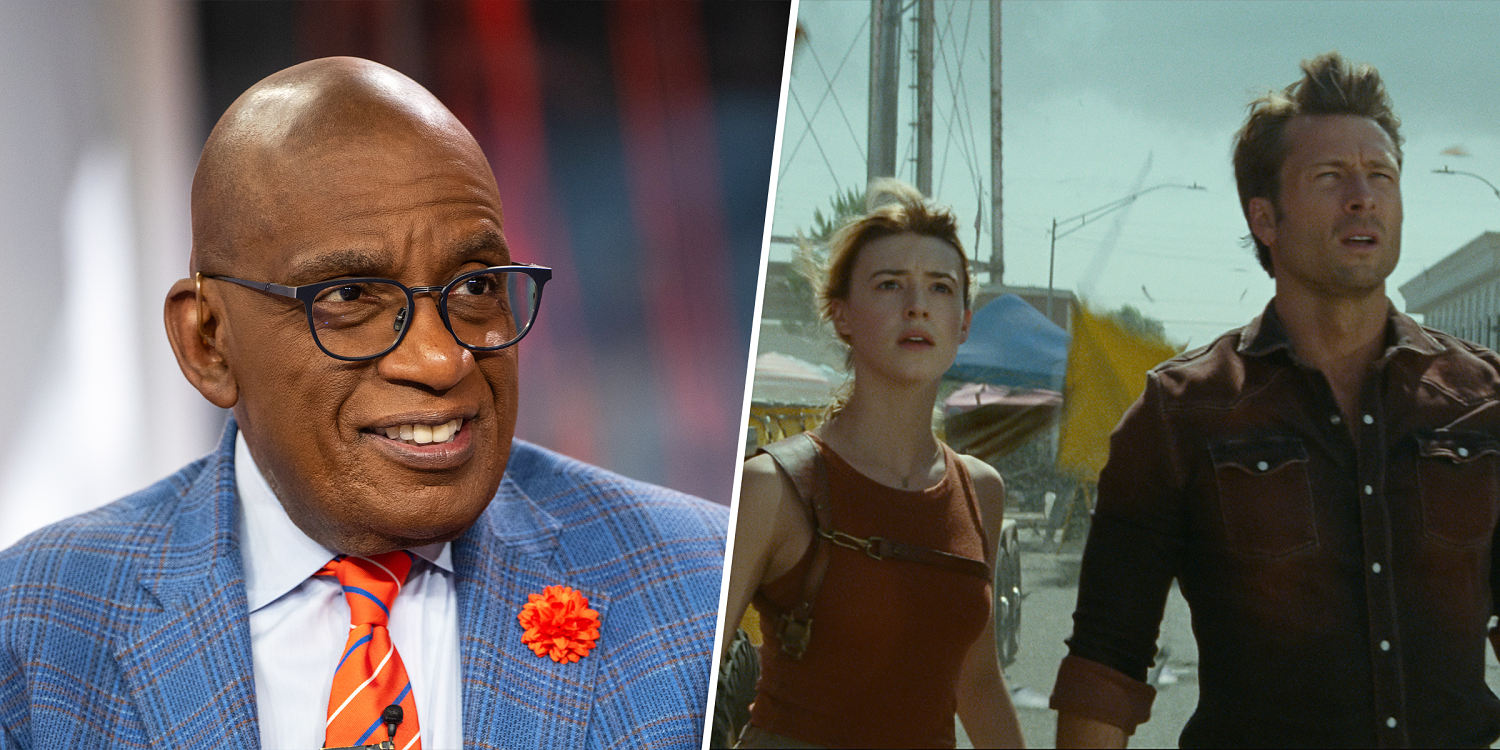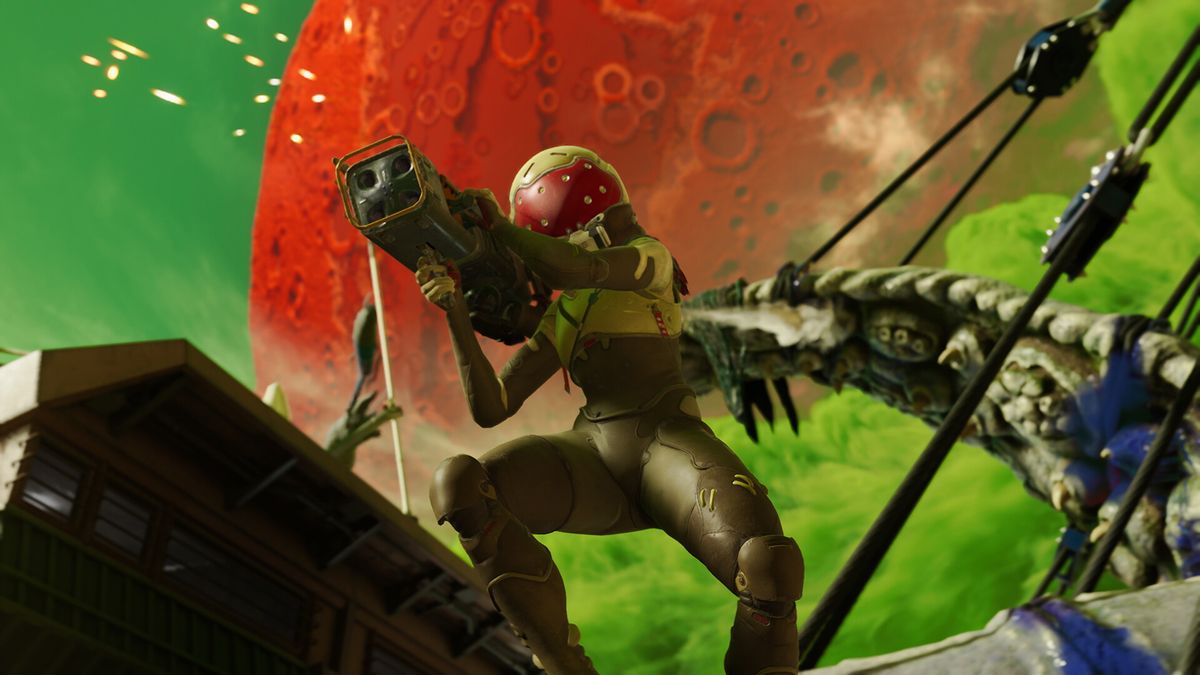TODAY's Al Roker only saw a tornado once, far in the distance. But it was the aftermath he saw close up — and the aftermath he remembers. Al and a TODAY crew visited Moore, Oklahoma, after an EF-5 tornado hit in 2013.
A camera can't capture the scale of destruction, Al says. "You see this devastation on television but the television provides a frame. while you look at it and go, 'That's terrible,' when you are on the ground and literally, as far as your eye can see, there is nothing.

There is not a building standing," he says. That scene plays out, again and again, in "Twisters," the follow-up to the 1999 movie "Twister." Both follow people chasing tornadoes in Oklahoma for the thrill, and for the chance of studying — and even stopping — the storms.
The movies show how tornadoes — or any extreme weather pattern — can be fatal and devastating. While covering the weather, Al says he keeps the storms' human impact front and center. "Every time I've been to something like this, whether it's a tornado aftermath or living through a hurricane, the thing that's uppermost, that always is uppermost in my mind is that this isn't just a story.
These are people's lives and livelihoods. When you see it in person, that just is really heavier." Given the danger, he's not interested in tornado chasing like Glen Powell's meteorology student-turned-daring YouTuber who tracks down tornadoes.
Al says he's had close calls while covering the weather for TODAY. His "most frightening" moment came during Superstorm Sandy in 2012, which wreaked havoc on New York and New Jersey's coasts. At the time, Al was filming while standing on a sand dune in Point Pleasant, New Jersey.
"My camera guy was on the second floor of a hotel balcony. He was calling down to me, 'I don't think you should be out there much longer.' I said, 'Let's do this one shot and we'll get off,'" he recalls.
"Literally, two to three minutes after I had finished and had climbed down the dune, it gave way," he says. "We had to scramble like hell to get the stuff off the balcony, into the truck. Within 15 minutes, it flooded the area.
" The runner-up, in terms of Al's perilous brushes with weather, came while covering Hurricane Wilma in Naples, Florida. "I'm on a hotel balcony. I'm out in 100-mile winds, and this camera guy is holding onto my legs.
That probably was a little foolhardy, but, but when you're younger, you feel pretty invincible," he says. For their force and randomness, Al says weather patterns make for good movie villains. "A hurricane or a in this case, a twister, a tornado, doesn't have an ideology.
It doesn't have an ax to grind. It has randomness. The ferocity is something we cannot control," he says.
In an era of climate change, Hollywood may create more natural disaster movies like "Twisters." But "Twisters" never mentions climate change, or might be contributing to more tornado outbreaks, sparking discussing in the scientific community. “My only quibble with ‘Twisters’ is the root cause of why these tornadoes are more active and more violent, and there are more of them, and in places that we weren’t seeing them before, is climate change.
And there’s no mention of that in the movie," he says. Addressing why the movie failed to mention climate change, director , “I wanted to make sure that we are never creating a feeling that we’re preaching a message, because that’s certainly not what I think cinema should be about. I think it should be a reflection of the world.
” That "reflection of the world" is up for debate. Al says that in his many years as a weatherman, he's seen people's response to the weather change. "In a sense, people are never satisfied with the weather they have right now.
People are, 'Hey, when's it going to cool off?' In five months, everybody's going to think, 'When's it going to warm up?'Are you never satisfied?" Al asks, laughing. "But yeah, I do think that no matter you know where you fall on this, I think people just anecdotally see their weather changing — that the severity of it, the frequency of it, is changed," he says. Unlike the characters in "Twisters," who were obsessed with the sky since childhood, Al had “no interest” in doing television weather.
He stumbled into an intro to meteorology class by happenstance as a science requirement. “It never dawned on me that I would do this. But I love it, because it doesn’t matter who you are — weather impacts everybody.
But as we have moved along, it is impacting people more and more,” he says. Elena Nicolaou is a senior entertainment editor at Today.com, where she covers the latest in TV, pop culture, movies and all things streaming.
Previously, she covered culture at Refinery29 and Oprah Daily. Her superpower is matching people up with the perfect book, which she does on her podcast, Blind Date With a Book..



















